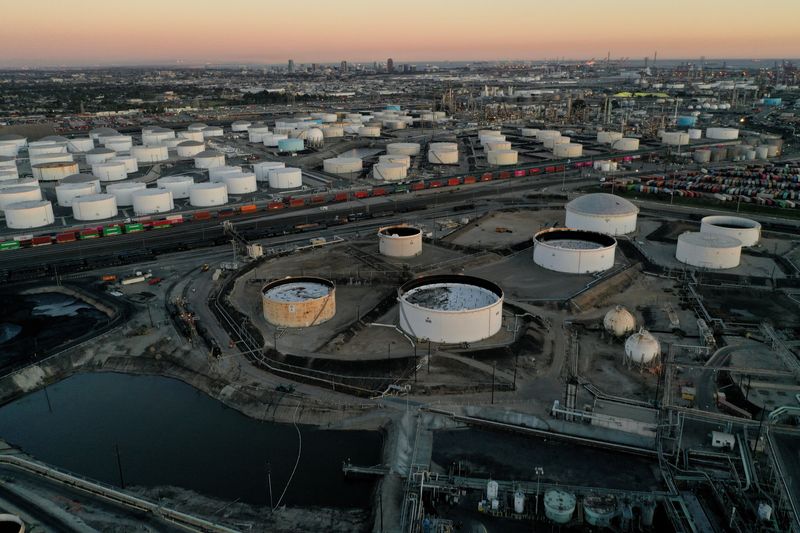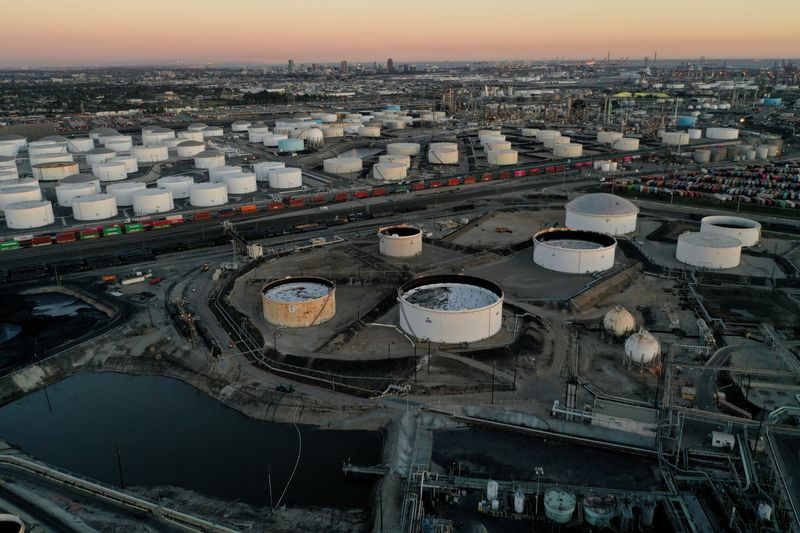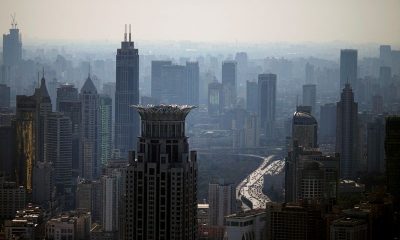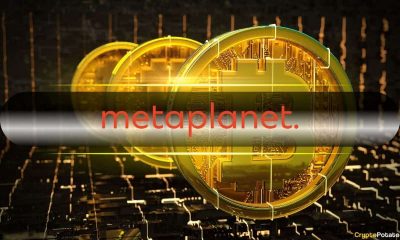Commodities
Oil gains 3% after OPEC+ delays output hike, US election in focus

By Arunima Kumar
(Reuters) -Oil prices rose about 3% on Monday on a decision by OPEC+ to delay by a month plans to increase output, while the market braced for a crucial week that includes the U.S. presidential election.
U.S. Democratic candidate Kamala Harris and Republican Donald Trump remain virtually tied in opinion polls ahead of Tuesday’s Election Day, and the winner might not be known for days after voting ends.
futures were up $2.13 per barrel, or 2.9%, to $75.23 a barrel at 1123 GMT. U.S. West Texas Intermediate (WTI) crude was up $2.15 a barrel, or 3.1%, to $71.64.
On Sunday, OPEC+, which includes the Organization of the Petroleum Exporting Countries plus Russia and other allies, said it would extend its output cut of 2.2 million barrels per day (bpd) for another month in December, with an increase already delayed from October because of falling prices and weak demand.
The grouping had been due to increase output by 180,000 bpd from December.
“Considering ongoing economic growth concerns, we believe the group wants more clarity on the economic impact of the interest rate cuts in the US and the fiscal and monetary policy easing in China,” said UBS analyst Giovanni Staunovo.
“The group should also have clarity on the next U.S. president and the impact of compensation cuts from countries that produced above their ceiling in the past.”
Speaking at an industry event in Abu Dhabi, the CEO of Italian energy company Eni said that OPEC+ oil supply cuts and recent efforts to unwind them had increased volatility in energy markets and hampered investment in new production.
Oil price volatility will be high this week, analysts said, with market participants awaiting Iran’s response to recent Israeli attacks and the U.S. election outcome.
On Thursday, U.S. news website Axios said Israeli intelligence suggested that Iran was preparing to attack Israel from Iraq within days, citing two unidentified Israeli sources.
“Senior advisors to Trump have expressed strong support for striking Iranian nuclear facilities and bringing back maximum pressure sanctions,” said Helima Croft, head of global commodity strategy at RBC Capital Markets.

A Harris administration, on the other hand, would probably not look to ratchet up sanctions pressure and would focus on bringing the war to an end as quickly as possible, Croft added.
Investor focus this week will be on the U.S. Federal Reserve as economists expect interest rates to be cut by 25 basis points on Thursday, and on China, where the Standing Committee of the National People’s Congress meets from Monday to Friday and is expected to approve additional stimulus to boost the slowing economy.
Commodities
Oil prices rise; U.S. crude inventories plunge, Russia-Ukraine truce eyed
Commodities
India’s Reliance to stop buying Venezuelan oil over US tariffs, sources say
Commodities
Oil prices climb on Venezuela supply worries

 Forex3 years ago
Forex3 years agoForex Today: the dollar is gaining strength amid gloomy sentiment at the start of the Fed’s week

 Forex3 years ago
Forex3 years agoUnbiased review of Pocket Option broker

 Forex3 years ago
Forex3 years agoDollar to pound sterling exchange rate today: Pound plummeted to its lowest since 1985

 Forex3 years ago
Forex3 years agoHow is the Australian dollar doing today?

 Cryptocurrency3 years ago
Cryptocurrency3 years agoWhat happened in the crypto market – current events today

 World3 years ago
World3 years agoWhy are modern video games an art form?

 Commodities3 years ago
Commodities3 years agoCopper continues to fall in price on expectations of lower demand in China

 Economy3 years ago
Economy3 years agoCrude oil tankers double in price due to EU anti-Russian sanctions





























